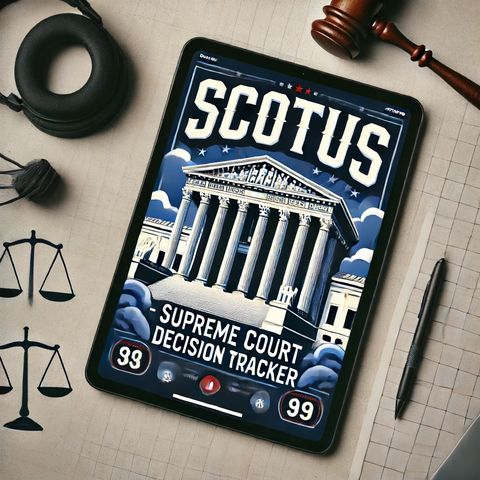"Navigating the Crossroads of Law, Politics, and the Supreme Court: Controversial Rulings and Legislative Challenges"

Download and listen anywhere
Download your favorite episodes and enjoy them, wherever you are! Sign up or log in now to access offline listening.
"Navigating the Crossroads of Law, Politics, and the Supreme Court: Controversial Rulings and Legislative Challenges"
This is an automatically generated transcript. Please note that complete accuracy is not guaranteed.
Description
The U.S. Supreme Court often finds itself at the center of significant national debates and controversies due to its role in interpreting the Constitution. Recent events illustrate this central role...
show moreSenate Minority Leader Chuck Schumer reportedly proposed legislation that could challenge established judicial norms. The legislation in question would direct lower courts to disregard specific Supreme Court rulings. This proposition touches on the foundational principles of American law where "the judicial power of the United States" is constitutionally vested in the Supreme Court. Such a directive from Congress directing judicial decision-making at lower court levels could indeed create a constitutional crisis by undermining the traditional separation of powers where courts are generally free from direct legislative oversight in their judicial reasoning and decision-making processes.
In a separate development, the Supreme Court chose not to rule in a highly contentious case from Idaho relating to the Emergency Medical Treatment and Labor Act (EMTALA). This legislation mandates that patients presenting in an emergency at any hospital must be stabilized and treated, irrespective of the state laws that might otherwise restrict such treatments, like abortion. This absence of a decision leaves unresolved questions about how states might enforce laws criminalizing specific emergency medical procedures, including those protected under federal law such as EMTALA.
Another significant Supreme Court decision, stemming from a case known as "Martin v. Boise," has spurred action and concern amongst homeless advocacy groups. The case dealt with whether cities can criminalize homelessness and led to a broader discussion on the rights of the homeless in public spaces. The subsequent Grants Pass decision has further added to the discourse, as the Supreme Court's decision underscored the limited protections homeless individuals have under the current legal framework and highlighted the ongoing criminalization they face.
These cases and legislative proposals underscore the complex interplay between federal law, state law, and Supreme Court rulings in shaping U.S. legal and social landscapes. The implications of these legal decisions and proposed laws are profound, illustrating the ongoing tension in America's federal system, and setting the stage for more heated debates on the power dynamics between the legislative and judicial branches of the government.
Information
| Author | QP-4 |
| Organization | William Corbin |
| Website | - |
| Tags |
Copyright 2024 - Spreaker Inc. an iHeartMedia Company
